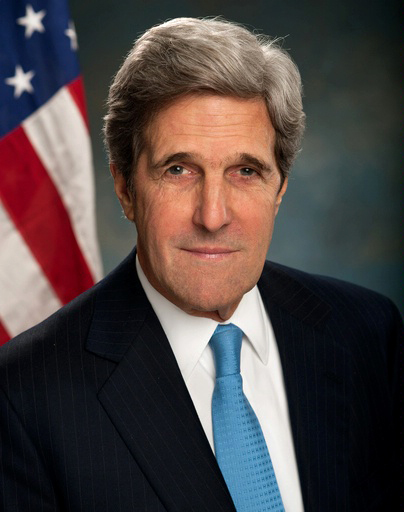On September 12, Secretary of State John Kerry announced that the last 280 members of a controversial Iranian opposition group, the Mujahedin-e Khalq (MEK), had been transferred from Iraq to Albania. Founded in 1965 as an urban guerilla group, it opposed the monarchy of Shah Mohammad Reza Pahlavi. The leftist group killed six Americans in Iran in the 1970s. The MEK participated in the 1979 Revolution but later broke with revolutionary leader Ayatollah Khomeini over ideology and direction.
In 1981, the MEK went underground. Members fled to Iraq and supported Saddam Hussein during the 1980-1988 war with Iran. The MEK helped Hussein’s forces suppress Shiite and Kurdish uprisings after the 1991 Gulf War. It also attempted an attack against the Iranian mission to the United Nations in 1992 and was thought to be responsible for attacks on Iranian officials in the 1990s. The State Department designated it a Foreign Terrorist Organization in 1997. But the MEK renounced violence in 2001.
During the 2003 invasion of Iraq, U.S. forces initially attacked MEK military targets. The group claimed neutrality though. As part of a cease-fire, members were disarmed and confined to their base at Camp Ashraf. The United States later designated them as civilian “protected persons.” More than 3,000 of the camp’s residents were moved to a former U.S. military base near Baghdad known as Camp Liberty in 2012 with the intention of resettling them elsewhere for their own safety. The State Department took the MEK off the terror list that same year, noting that it had not been positively linked to terrorist attacks for more than a decade. During the last few years, the United States has helped to resettle MEK members in several European countries, including Albania.
The following is the full text of Kerry’s remarks on the recent transfer.
Secretary of State John Kerry
 On Friday of last week, the last 280 members of the exiled Iranian opposition group, the Mujahedin e-Khalq, or MEK, as they’re known, were moved out of Camp Liberty in Iraq. And their departure concludes a significant American diplomatic initiative that has assured the safety of more than 3,000 MEK members whose lives have been under threat. And as everybody remembers, the camp they were in had on many occasions been shelled. There were people killed and injured. And we have been trying to figure out the way forward.
On Friday of last week, the last 280 members of the exiled Iranian opposition group, the Mujahedin e-Khalq, or MEK, as they’re known, were moved out of Camp Liberty in Iraq. And their departure concludes a significant American diplomatic initiative that has assured the safety of more than 3,000 MEK members whose lives have been under threat. And as everybody remembers, the camp they were in had on many occasions been shelled. There were people killed and injured. And we have been trying to figure out the way forward.
Well, the last 10 years have been filled with reminders of this challenge. I first became involved in this effort when I was in the Senate, and that is why during my first year as Secretary I appointed Jonathan Winer, one of my longest-serving and most trusted advisers, as our emissary to find a way to help the MEK be able to leave Iraq.
After steady progress over a period of months, I visited Tirana earlier this year and I discussed with the Albanian Government how to assist in facilitating the transfer and the resettlement of the last group of MEK members from Camp Liberty. Albania has a proud tradition of protecting vulnerable communities, as it did during the Kosovo conflict and in sheltering large numbers of Jews during World War II. I am very grateful that in this case too Albania was willing to play an important humanitarian role. I also want to thank the governments of Germany, Norway, Italy, the U.K., Finland, and other EU countries for helping to save the lives of the MEK. And this is a major humanitarian achievement, and I’m very proud that the United States was able to play a pivotal role in helping to get this job done.
—Sept. 12, 2016, during a press briefing
Click here for more information about the MEK.
